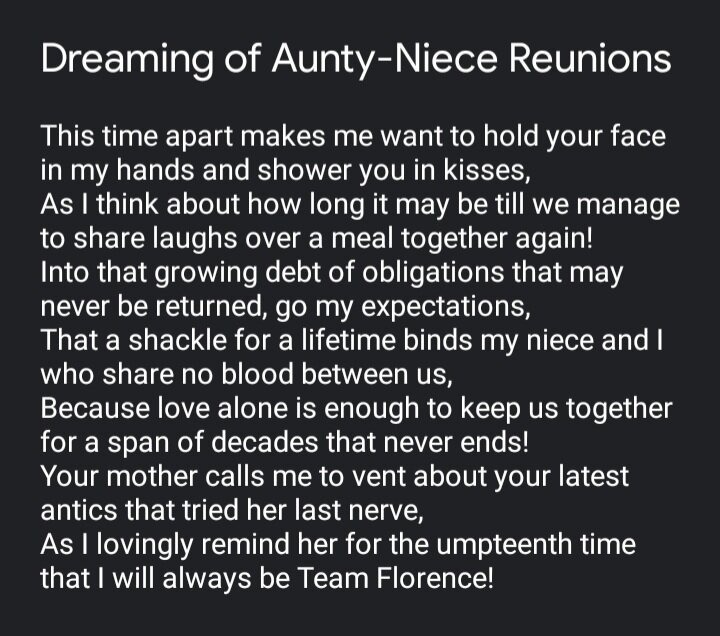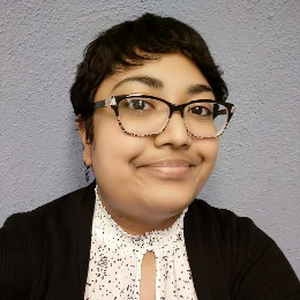What Future Clients Should Know
How much do you charge?
My rates depend on a variety of factors. Generally, my minimum hourly rate is $300 for longer-term projects like consulting and training, and at least $500 for short-term work like a single-session webinar. Some areas of expertise include Mental Health, Disability Justice, Medical Oppression, Reproductive Justice, Trauma-Informed Care, Anti-Oppressive Practice, BIPOC Solidarity, Financial Precarity, Family Estrangement, Health Disparities, Accessible Communication, etc. Since there is no ethical consumption under capitalism, such rates allow me to provide highly subsidized services for BIPOC communities, especially those who are also LGBTQIA+, disabled, etc. for tutoring in the social sciences, individual coaching, sensitivity reading, project management, virtual assistance, writing, editing, proofreading, etc.
How can we work together?
Organizations interested in working with me can proceed with a payment of $300 for an hour of my time here, as that is my minimum hourly rate, after which, they will be contacted for scheduling at my earliest convenience. Please only do so if you can afford at least $500 for short-term freelance work, or a minimum hourly rate of $300 for longer-term project work for consulting, training, etc. This new process is as a result of how much unpaid emotional labour I exhausted last year on privileged folx who may have meant well, but still caused irreparable harm.
What do I need to know to get started?
Before contacting me, it can be helpful to review my earlier work to understand the lens I bring. My personal essays for Huffington Post Personal, the Disabled Writers Blog, Healthline, the Community-Centric Fundraising hub, Best Health, Just Preachy, and Verwell Mind provide a good starting point. You may also benefit from looking at my digital storytelling work on Surviving Academia in this Body and listening to my appearances on the Scarboro Stories, Cove Collective, and Project 25 podcasts.
What healthcare experience do you have?
My healthcare career began at 16 when I started working for Etobicoke General Hospital in Food Services. By 2003, I had transitioned into an administrative support role in Labour and Delivery at Peel Memorial Hospital, where I also worked in Critical Care and Paediatrics until moving over to Brampton Civic Hospital. Those clerical roles in healthcare largely paid for my undergraduate studies at York University. I returned to work for a hospital during my advanced practicum placement with the Children's Hospital of Michigan in 2010. Upon graduating from the University of Windsor, I was first employed by North Bay General Hospital, which eventually became North Bay Regional Health Centre, where I started as a Discharge Planner, but soon transitioned into a Social Worker role in Labour and Delivery and Paediatrics, until accepting full-time work in a Therapist role at the Mental Health Clinic. By 2014, I moved to Port Perry to work as a Therapist for the North Durham Family Health Team, which I did until 2017.
What education experience do you have?
My entry into the field of education came with my Graduate Research Assistant contract from the University of Windsor in 2009, which was a large part of how I was able to afford graduate studies. By 2011, I had accepted a Child Development Counsellor role with the Near North District School Board to work with Grade 7 and 8 students. Then in 2012, I taught Justice and the Poor: Issues of Race, Class, and Gender at Nipissing University for the first time. By 2014, I had been accepted as part of the Social Justice Solutions pilot project for contributors, which was my first opportunity to use writing as a tool for education with the public. I would continue such work with NetGalley in 2017, as I began reading advance review copies of books to provide feedback to publishers about how to avoid oppressive content. By 2018, I was hired by the University of Toronto in a Wellness Counsellor and Coordinator role, wherein I realized I was teaching marginalized students individual coping skills to navigate inherently oppressive systems. That prompted my transition into an Accessibility Advisor position, in the hopes of using my skills to directly address ableism in my support of disabled students' access to accommodations, which I held until 2021.
Where have you presented before?
In 2019, I presented at the Dismantling Barriers to Education Conference at York University, and I was a part of the BIPOC Mental Health in Academia panel at the Minds Refined Conference at the University of Toronto. In 2021, I presented workshops at the Talking Back Feminist Media Conference and the RISE Media Conference, gave a speech at the Gathering Divergence Multi-Arts Festival and Conference, and served as a panelist at the NASH83 Student Journalism Conference. In 2022, I presented at the Achieving Equity through Radical Leadership Conference at the Ontario Institute for Studies in Education, served as a panelist at the Centre for Independent Living in Toronto’s IDE+A Symposium, and moderated a roundtable on Migraine in BIPOC Communities for Healthline. In 2023, I facilitated a workshop at The Future of Writing Symposium, and moderated a panel for the American Society of Journalists and Authors Conference.
Why do you use the term "BIPOC"?
For me, use of the term "BIPOC" is intentionally political to acknowledge that I am not harmed by white supremacy and settler-colonialism to the extent that Black and Indigenous folx experience, especially in the context of my facilitation of Sustainable Resistance for BIPOC Folx writing workshops. As an Indo-Trinidadian immigrant woman and settler on Turtle Island, my work is always in solidarity with Black and Indigenous communities. To do so means understanding my positionality as a brown femme with multiple degrees, who may find myself offered positions wherein complicity with white supremacy and settler-colonialism will be expected, which requires me to reject model minority myths. While I often use the term BIPOC, I support Black, Indigenous and racialized folx to use language that resonates for them, as I am not opposed to the use of such terms as people of colour, racialized, people of the global majority, etc.
Does your website domain align with #AllLivesMatter?
Since my organization is called Intersectional Equity Insights, I wanted a social media handle on Twitter and Instagram that aligned with my interest in equitable outcomes for all marginalized groups, which eventually informed my website domain. While I did not initially make this connection, I have recently begun to wonder if it may connote #AllLivesMatter sentiments to some, so I will explicitly state that I support movements like #BlackLivesMatter, #SayHerName, etc. that work towards equitable outcomes for all Black communities, especially as I directly benefit from the civil rights movement that was led by Black folx. I also support movements like #LandBack, #IdleNoMore, etc. that work towards equitable outcomes for all Indigenous communities, especially as a settler on Turtle Island.
Why do you identify as an "artivist"?
I identify as an artivist, based on M.K. Asante's conceptualization of the term, as follows:
The artivist (artist +activist) uses her artistic talents to fight and struggle against injustice and oppression – by any medium necessary. The artivist merges commitment to freedom and justice with the pen, the lens, the brush, the voice, the body, and the imagination. The artivist knows that to make an observation is to have an obligation.
Having entered the social work field with plans to strive for equitable outcomes for all, without realizing my commitment to dismantling white supremacy would limit employment repeatedly, art offered opportunities to disrupt the problematic status quo during the pandemic. In virtual spaces that prioritized the unique needs of Black, Indigenous, and racialized folx, I felt the rare experience of having my writing voice nurtured, which is what I try to do in my own workshops, and continue to prioritize as I shift to offering more individual services that combine my social work background with my skills as a writer. Without that support, I may never have had the hundreds of published clips I now have since publications recognized their inherent white supremacy following the murder of Mr. George Floyd, which continues to inform all of my work.

